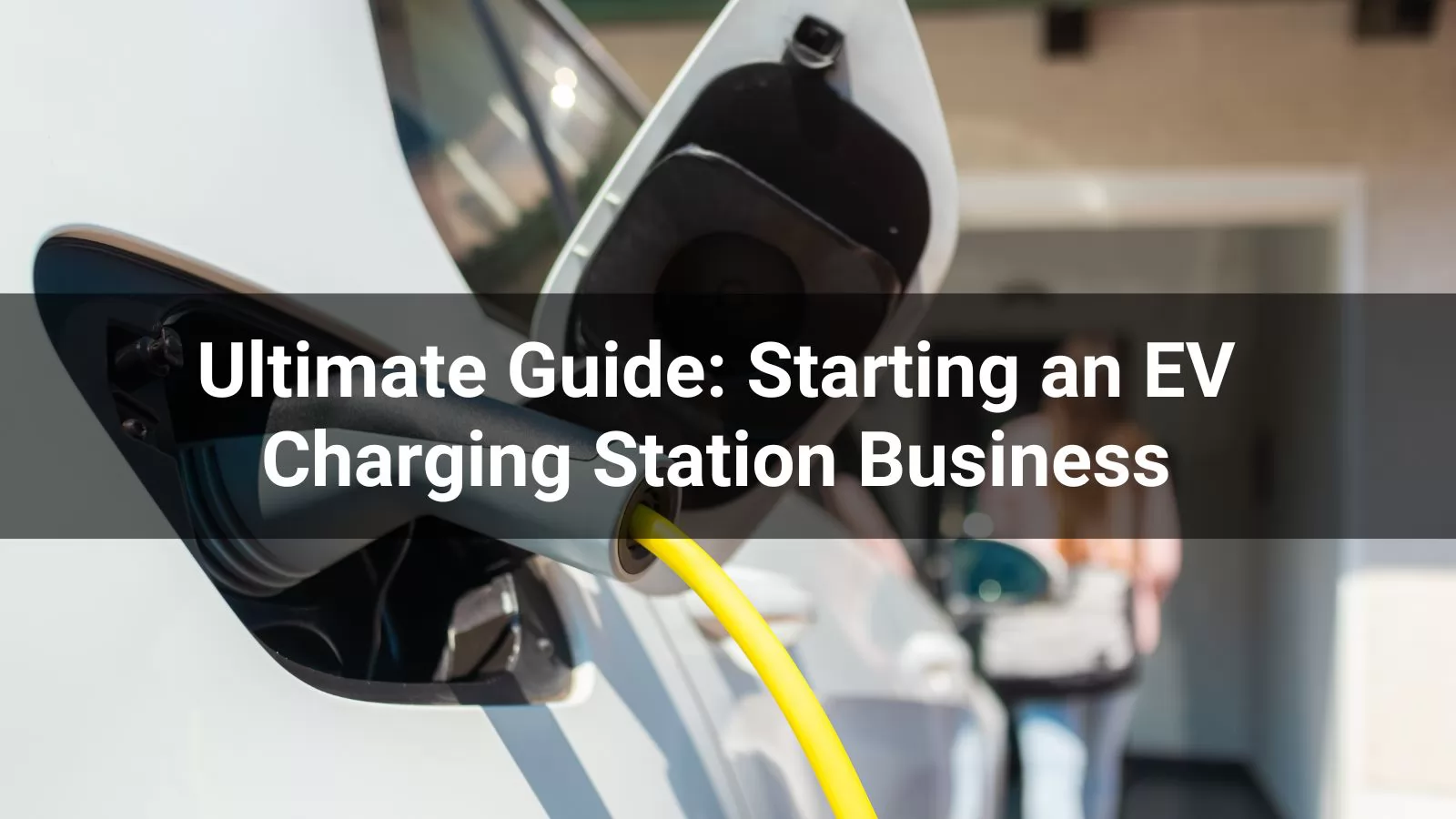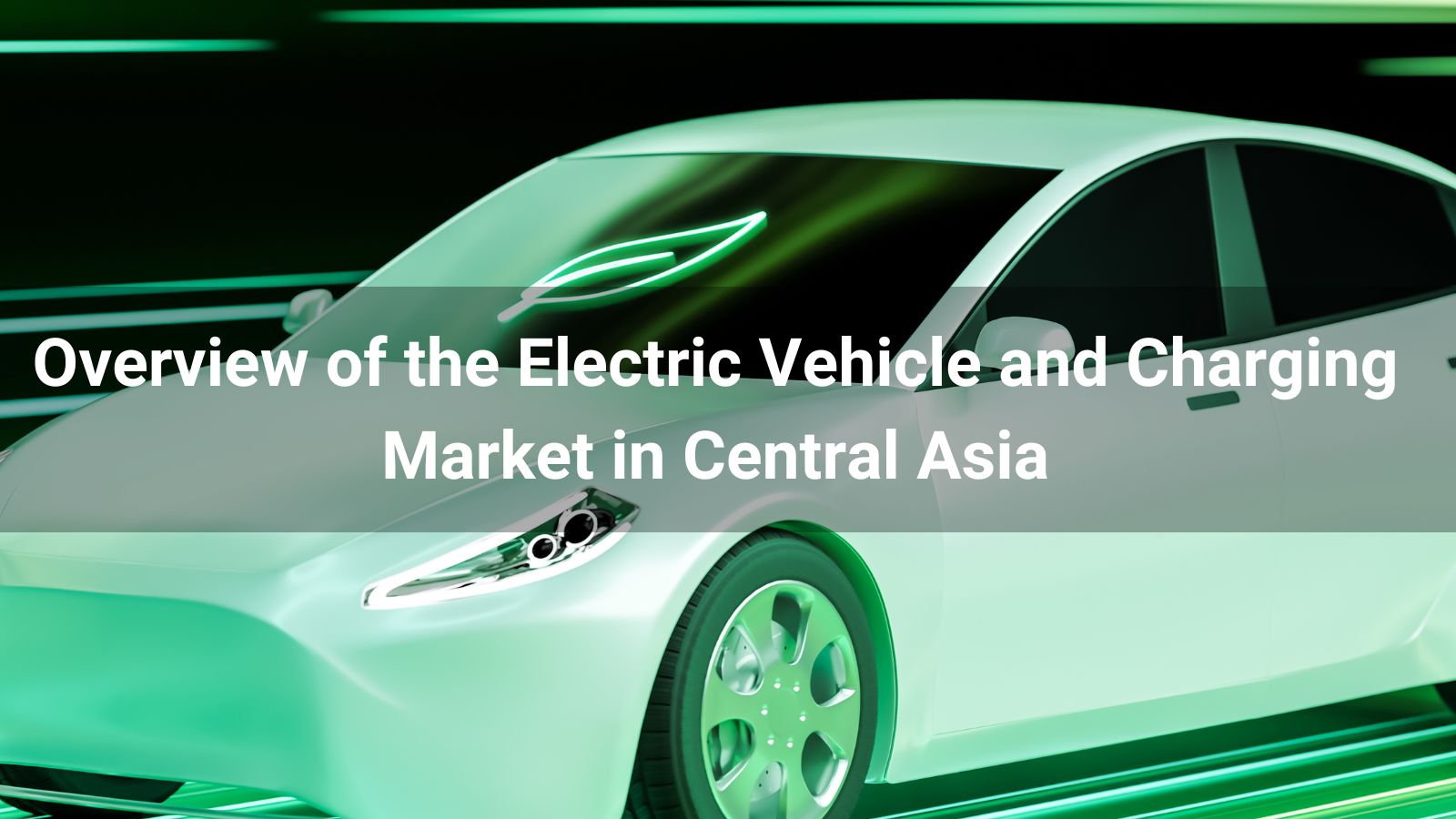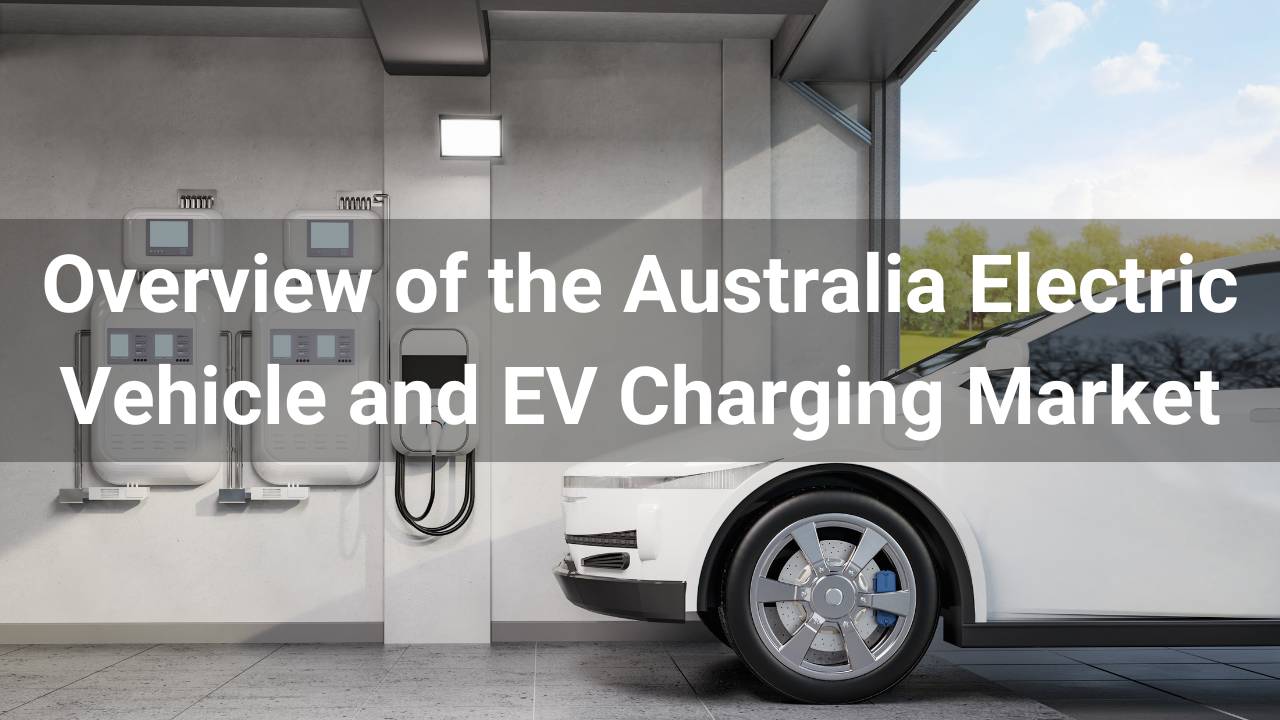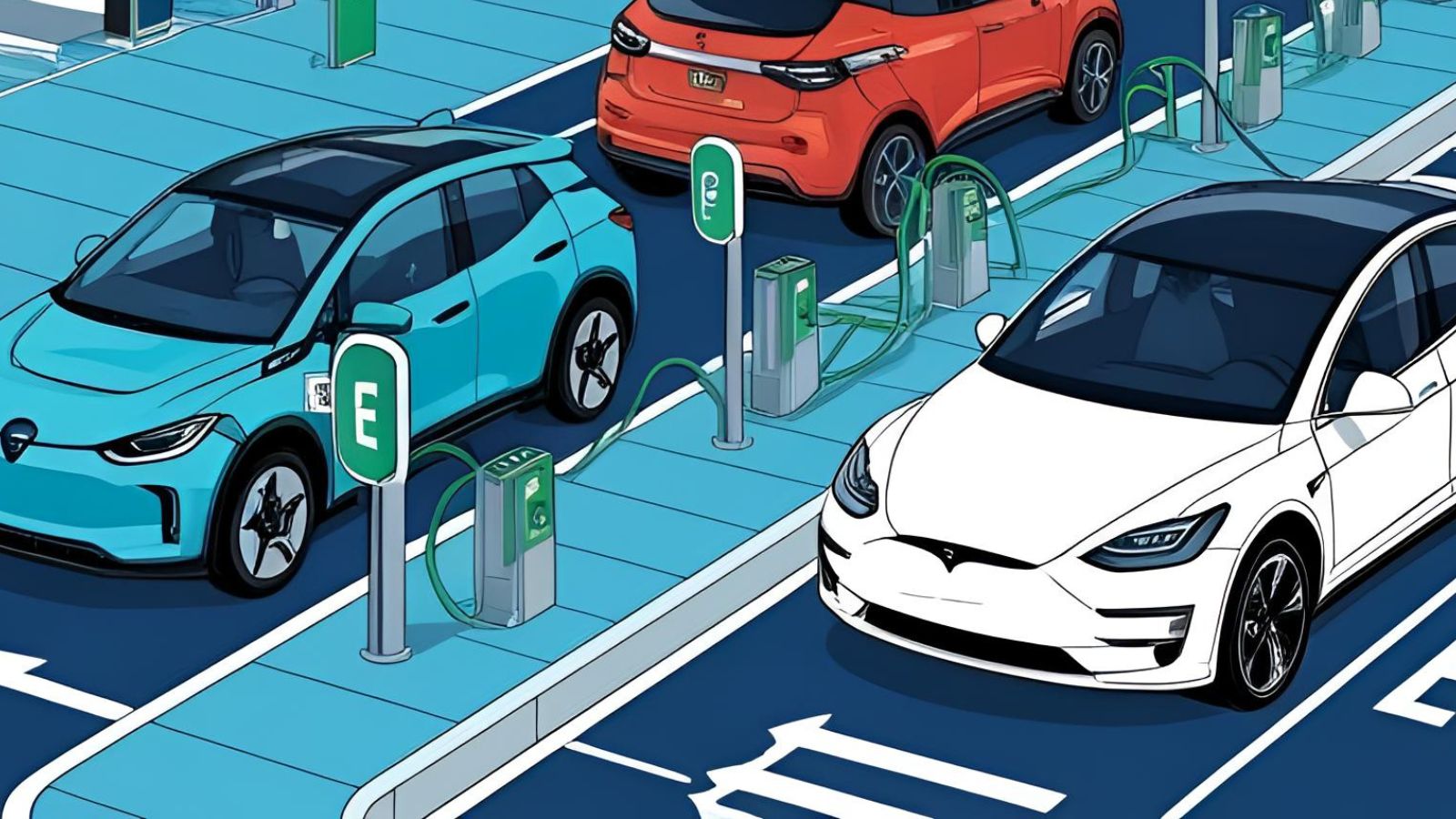Ultimate Guide: Starting an EV Charging Station Business

The electric vehicle (EV) industry is rapidly expanding across the globe, driven by increasing consumer demand for clean energy solutions and enhanced vehicle performance. As a result, the EV charging station market is poised for significant growth, with estimates projecting it will reach USD 115 billion by 2028.
This burgeoning trend presents a tremendous opportunity for entrepreneurs who want to tap into the EV charging business. If you're considering starting an EV charging station business, this guide will provide you with a clear roadmap, helping you understand everything from market research to installation and profitability.
1. Investigate Your Local EV Charging Station Market
Before diving into the EV charging station business, it's essential to conduct a thorough analysis of your local market to assess the demand, competition, and pricing structure.
Demand for EV Charging Stations
First, evaluate the number of electric vehicles in your area. If the local population has a significant number of EVs, the demand for charging stations will be higher. Understanding the growth rate of EV adoption in your locality will give you valuable insights into the potential customer base.
EV Charging Market Price
The cost of charging an electric vehicle can vary depending on factors such as local electricity rates, the type of charger used, and vehicle models. Prices typically range from USD 0.11 to 0.35 per kWh. Researching local pricing helps you set competitive rates while ensuring profitability.
Local Competition
In cities with high EV adoption rates, many entrepreneurs are likely to open charging stations. It's essential to study the competition in your area to identify gaps in service and understand where demand is most concentrated. Consider setting up your station in high-traffic areas with limited competition, like busy shopping centers, hotels, and parking lots.
2. Install Your Commercial EV Charging Stations
Once you've assessed the market, it's time to move forward with setting up your commercial EV charging station. Installation involves several critical steps, including choosing the right location, acquiring EV chargers, and planning the layout of your station.
Choosing the Right Location
The location of your EV charging station is crucial for its success. High-traffic areas, such as commercial centers, malls, and near major highways, are ideal for attracting customers. You also need to ensure there is enough space for charging stations and vehicles to park comfortably.
Design Considerations
The minimum space requirement for an EV charging station is typically around 100 square feet. Design the space strategically to accommodate multiple chargers while leaving room for vehicles to park and move easily. Consider the types of chargers you will offer, with Level 2 and Level 3 chargers being ideal for commercial use.
Anari Energy offers compact and efficient portable charging stations, which take up minimal space, making them ideal for businesses with limited space.
Types of EV Chargers
There are different types of EV chargers, each suitable for different applications. Level 2 chargers are the most common in commercial settings, while Level 3 chargers (DC fast chargers) are ideal for high-traffic locations that need rapid charging. DC fast chargers are in high demand, and installing multiple units can make your station more attractive to customers.
Station Distribution
Proper distribution of chargers within the station is essential for smooth operation. Ensure that chargers are strategically placed to minimize wait times for customers. Prioritize fast chargers, as these are in high demand and offer better returns on investment.
3. Make Business Benefit from Your Commercial EV Charging Stations
Once your EV charging stations are up and running, it's important to optimize them for profitability. Below are the key factors that can influence the success of your business.
Price Setting
Your pricing strategy will play a significant role in attracting customers and ensuring profitability. Research local competitors' pricing and consider setting a price that is competitive but still ensures a steady profit margin. Offering competitive rates can help you attract a consistent flow of customers.
Consumer Groups
Different consumer groups will use your EV charging stations, from daily commuters to travelers and fleet operators. Understanding the preferences of these groups will help you provide targeted services. For example, residential users may prefer affordable Level 2 chargers, while those needing fast charges during travel will be drawn to Level 3 DC chargers.
Number of Chargers
The number of chargers you install will directly affect your revenue potential. More chargers mean you can accommodate more vehicles, especially during peak times. However, it’s also important to strike a balance between the number of chargers and the cost of installation and maintenance.
4. Factors Affecting EV Charging Revenue
The profitability of your EV charging station business will depend on several factors, including the pricing structure, customer volume, and operating costs.
EV Charging Station Installation Costs
The initial cost of setting up an EV charging station can be significant. Key expenses include the cost of purchasing chargers, installation labor, site setup, and obtaining necessary permits. Ensure you account for all associated costs when planning your budget.
Electric Infrastructure Installation Cost
The infrastructure required for your EV charging station is the most significant cost component. This includes the installation of electrical wiring, transformers, and power systems necessary to support multiple chargers. Depending on the number of chargers you install, infrastructure costs can add up quickly.
Ongoing Electrical Costs
Electric vehicle chargers require a constant power supply. On average, a charging station will require 50 kW of electricity to operate efficiently. Be prepared for ongoing electricity costs, which will vary depending on your location and the number of customers using your station.
Maintenance Costs
EV charging stations require regular maintenance to ensure smooth and safe operations. Maintenance costs typically include the upkeep of the chargers, regular checks by technicians, and troubleshooting services.
5. Anari Energy: Making Your EV Charging Station Business Easier
Choosing the right supplier for your EV chargers is essential to the success of your business. Anari Energy is a reliable and experienced supplier based in China, with over 30 years of experience in the EV charging industry. Anari Energy offers a wide range of AC and DC chargers for various applications, including residential, commercial, and industrial sectors.
Tailored Solutions for Different Locations
Anari Energy provides customized EV charging solutions for a variety of environments, including commercial parking lots, hotels, resorts, shopping centers, and workplaces. Our extensive product portfolio includes both Level 2 and Level 3 chargers, ensuring that you can cater to different customer needs.
Successful Projects and Global Presence
Anari Energy has successfully completed over 100 million EV charging station projects across the globe. Our clients include businesses from countries such as Germany, the UK, France, the UAE, India, and Australia. With our expertise and track record, we can help you establish a profitable and sustainable EV charging station business.
Comprehensive Installation and Maintenance Services
At Anari Energy, we offer end-to-end solutions, including professional installation, technical support, and maintenance services. Our skilled team of over 100 technicians ensures that your chargers are installed and maintained to the highest standards, helping your business run smoothly.
Conclusion
Starting an EV charging station business can be highly profitable, with growing demand as more people switch to electric vehicles. By conducting market research, installing the right equipment, and optimizing your business operations, you can position yourself for long-term success. Anari Energy’s reliable chargers and comprehensive services make it easy for you to enter the EV charging market and ensure that your business thrives.
To learn more about how Anari Energy can help with your EV charging station business, Contact Us Today!
Read more:
Top 10 EV Charger Manufacturers in the USA in 2025
Step-by-Step Guide: How to Install an Electric Car Charging Station
Top 10 EV Charging Companies in the World 2025
The state of EV Charging in the Middle East Region - Anari Energy

You Might Also Like...
-

Overview of the Electric Vehicle and Charging Market in Central Asia
2026 Feb,05 -

Overview of the Australia Electric Vehicle and EV Charging Market
Australia's electric vehicle (EV) market is rapidly expanding, with Tesla leading the high-end segment and Chinese brands like BYD gaining traction among mid-to-low-end consumers.2026 Feb,05 -

List of 60 EV Charging Companies in 2026
EV charging companies are at the forefront of this revolution, driving the transition to sustainable transportation through innovative technologies and expansive networks. Below is a list of 60 leading EV charging companies worldwide in 2026, showcasing the key players shaping the future of mobility.2026 Jan,26












